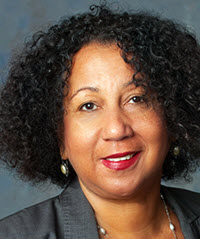Part One: Gender Matters: A Look at How Covid-19 Has Impacted the Economic and Educational Status of Marginalized Women and Girls Worldwide

Patricia A. Broussard
Query: What secondary economic impact has COVID-19 had on the most vulnerable populations in the world?
Short answer: An economic pandemic has been visited upon women and girls, who are globally the most vulnerable population. has been their plight for decades, if not centuries, and COVID-19 has threatened to divert attention and resources so desperately needed to address their vulnerability. impact of COVID-19 is especially glaring in the areas of extreme poverty and education. In this part of our conversation, I will focus on what COVID-19 has done to negatively exacerbate the impact on women and girls in these critical areas.
[. . .]
This paper contains facts and figures that define the daily lives of marginalized women worldwide. It was written from the comfort of my home. I had food and fresh water available to me on a daily basis despite being quarantined. I had doctors' appointments I was able to attend and pay for. I had air conditioning during the oppressive heat, and I had technology at my disposal. I understand that I am privileged, and as such, I have a responsibility to be a voice for the voiceless and to tell the stories they cannot tell. The intent of this article is not to reduce marginalized women to statistics; rather, it is to emphasize their divine humanity.
Marginalized women and girls appear to be collateral damage to the COVID-19 pandemic. This virus has hamstrung the steady but limited strides previously made in the areas of easing poverty, increasing educational opportunities, and preventing domestic violence. COVID-19 has taken up all of the oxygen in the room. World economies are suffering, which has caused governments to reevaluate their budgetary priorities and reassign and realign resources away from marginalized women's critical needs to aid in combating COVID-19. It is reasonable for governments to allocate resources to provide for the health and safety of their citizens. However, they must also remember that included in their citizenry is a vulnerable population needing greater protection and attention to prevent it from spiraling into a pandemic of hopelessness and death that could rival COVID-19.
Other things must be done to protect women and girls during this pandemic. The first step is an acknowledgement that this pandemic has disproportionately impacted marginalized women, coupled with the commitment that they must be protected at all costs. Secondly, and probably most importantly, women must have a seat at the table where decisions are being made about them. Too often these decisions are made by male contingencies, lacking the necessary and critical input of those most impacted by the situation.
Because poverty is such an issue for marginalized women, they must be given as equal an opportunity to work as men, even in a depleted job market. Governments, which have the ability, can and should institute some sort of minimum income for all in need. In addition, food and medical care should be readily available to the most susceptible. Arguably, this requires cooperation on a global level because, in the event of a food shortage, as predicted, countries will seek to protect their own citizenry first. In the United States, social safety nets must be expanded to create a safe space for women living on the edges of poverty.
Also, schools and schooling must be made a priority for girls. Previous efforts to curtail the barriers preventing girls from receiving the education they so desperately require must continue. Governments must mitigate the effects of the virus on girls through effective planning and by financing initiatives to get them back into schools and keep them there. It is imperative that there be adequate funding both during the pandemic and for the years to come after. Governments must do more to address the issue of violence against women and girls if they are serious about educating them. Supporting these victims should be a priority.
Lastly, governments must uplift marginalized women and girls during and after COVID-19. In doing so, they are lifting up the health and well-being of their countries. They must actualize the notion that "women hold up half the sky," by ensuring that they survive, prosper, and receive the education they so richly deserve. In doing so, they must acknowledge the fact that women are human.


